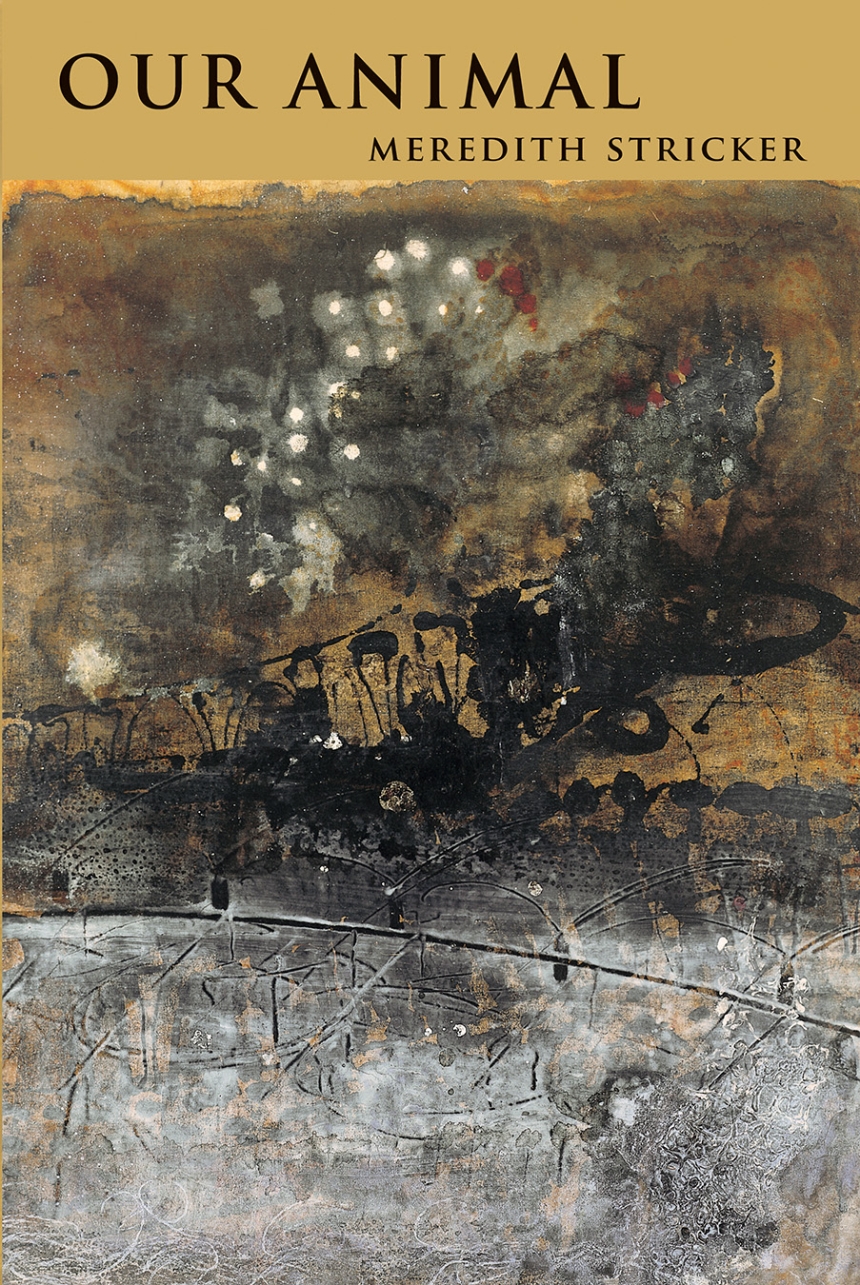"Our Animal hybridizes novel flaking into poetic forms like a gnat swarm, magnetic filings or migratory flux. It’s a fierce inquiry into Othering, tracking Kafka’s life through his deep identification with animals, especially those hunted or outcast. Graphically complex with metamorphic text layers, the chapters shape-shift in relation to crows, dragonflies, a frog; there are deer, swallows, a goldfinch, humans, a hybrid Beast, wolf, Insekt, a small unidentified animal in its burrow. Drawing on family history in Hungary and Siberia, the phonemes of exile and homeland, the familiar and displaced, Our Animal entangles us in biography as biology—bios writing and re-writing wartime, fragments of history and the nature of translation: interlingual, interspecies—paradisiacal transfiguration that leaves out no being.
The continual back and forth movement of this multi-layered, multi-sourced story of literary kinship over time comes to resemble the pacing of a caged bear. The va-et-vient takes place between Stricker and Kafka, as well as between the two them and us, the readers, animals all. As they pace within the enclosure-like poems, the border between what Kafka wrote and what Stricker is writing dissolves, and as it does, unattributed fragments rise to the surface out of what appears to be the static of the two talking over one another: 'That’s o.k. I show up later anyway' 'a stray dog scuffles behind a dumpster' 'wants earth' 'like a blond wax' 'angel Madonna doll.' There are even flashes here and there of what might be taken for truth. Not the old idea of truth, a polished-to-perfection gem, but a Janus-faced truth that resists the falsity of sound-bite reductive purity and edges closer instead to the convulsive beauty of surrealism. In the chaos of any given moment, on the mirror at the back of the cage we can see ourselves looking first here, then there—'I' 'a' 'wax' 'doll'—as we mime Stricker’s search for some consoling likeness."

